Tree Surgeon Chudleigh
Top Tree Surgery in Chudleigh
Receive multiple Tree Surgery Company quotes for your project today! Compare profiles, reviews, accreditations, portfolio, etc... and choose the best service.
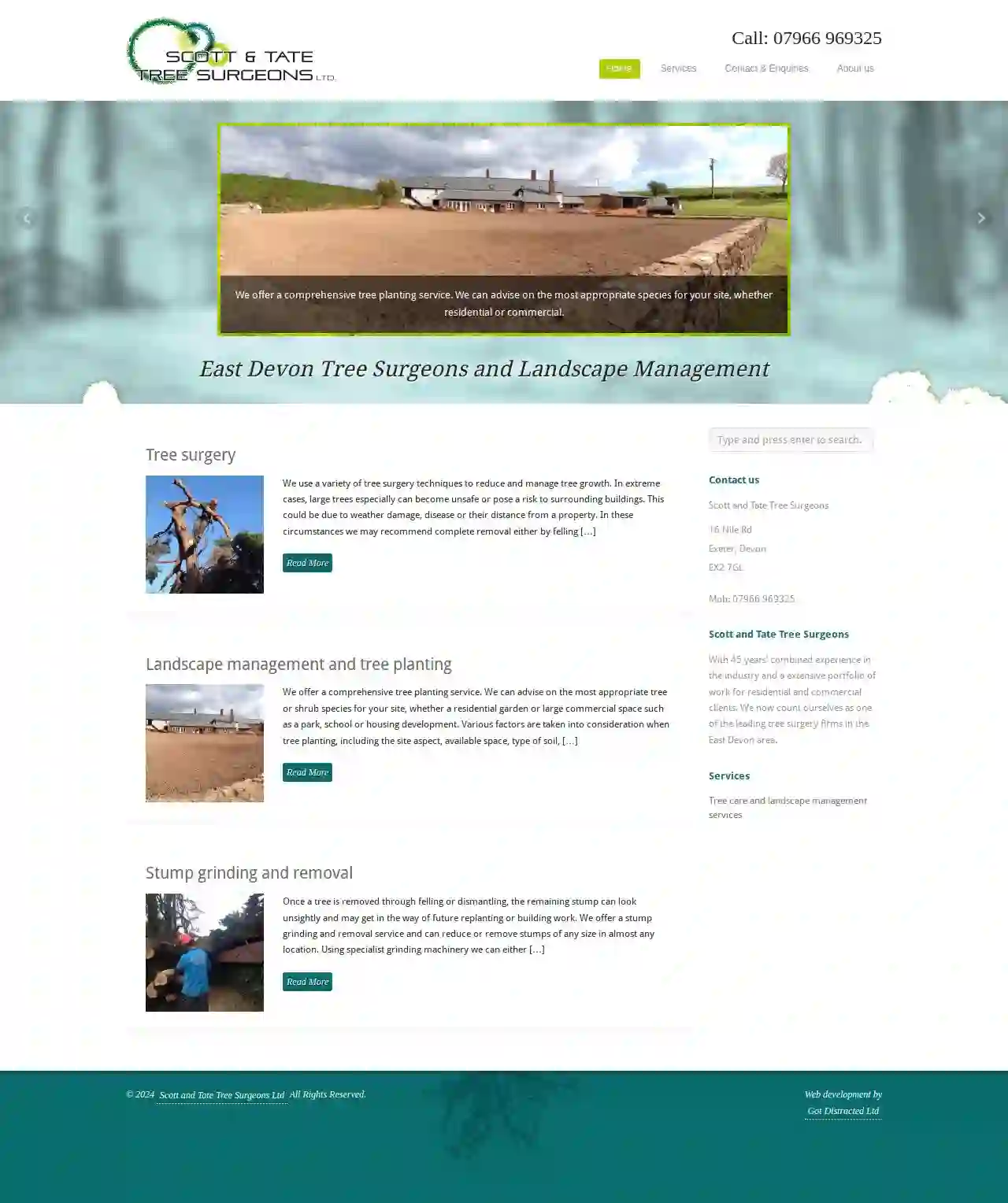
Scott & Tate Tree Surgeons Ltd
55 reviews16 Nile Rd, Exeter, EX2 7GL, GBScott and Tate Tree Surgeons is a leading tree surgery firm in the East Devon area, with 45 years' combined experience in the industry. We offer a range of services, including tree care and landscape management, stump grinding and removal, and tree planting. Our team uses a variety of techniques, such as felling, dismantling, crown reduction, thinning, lifting, shrub and fruit tree pruning, and hedge trimming, to manage and maintain trees. We also provide advice on the most appropriate tree or shrub species for your site, whether residential or commercial. With a strong focus on customer satisfaction and a commitment to delivering high-quality work, we have built a reputation as one of the leading tree surgery firms in the area.
- Services
- Why Us?
- Our Team
- Gallery
Get Quote
Gavin Hendry Tree Surgery & Grounds Maintenance
5140 reviewsBarnstaple, Devon, GBGavin Hendry Tree Surgery & Grounds Maintenance is a professional arboriculture and grounds maintenance business, founded in 2017 by Gavin RJ Hendry, who had previously achieved an accomplished career of 24 years in the HM Forces (Army). We pride ourselves on our dedication, professionalism, and reliability. Our team is dedicated, professional, and conscientious with everything we do. We have obtained many National Proficiency Test Council (NPTC) City & Guilds qualifications in Tree Surgery, which enable us to deliver a robust, professional, safe, efficient, and reliable service guaranteed.
- Services
- Why Us?
- Accreditations
- Our Team
- Testimonials
- Gallery
Get Quote
MW Tree Consultancy
52 reviewsExmouth, GBMW Tree Consultancy provides bespoke tree care services and advice across the South West & the Midlands, enabling those with a responsibility for caring for trees and foliage to successfully integrate, incorporate and manage trees within the urban environment and beyond. With a 30-year career in planning and arboriculture, Mark Waddams, the founder, has developed invaluable knowledge in tree protection, planning, tree surgery, as well as urban and landscape design. The company advises and supports domestic, private, and public clients on successfully integrating, incorporating and managing trees within the urban environment and beyond.
- Services
- Why Us?
- Our Team
- Gallery
Get Quote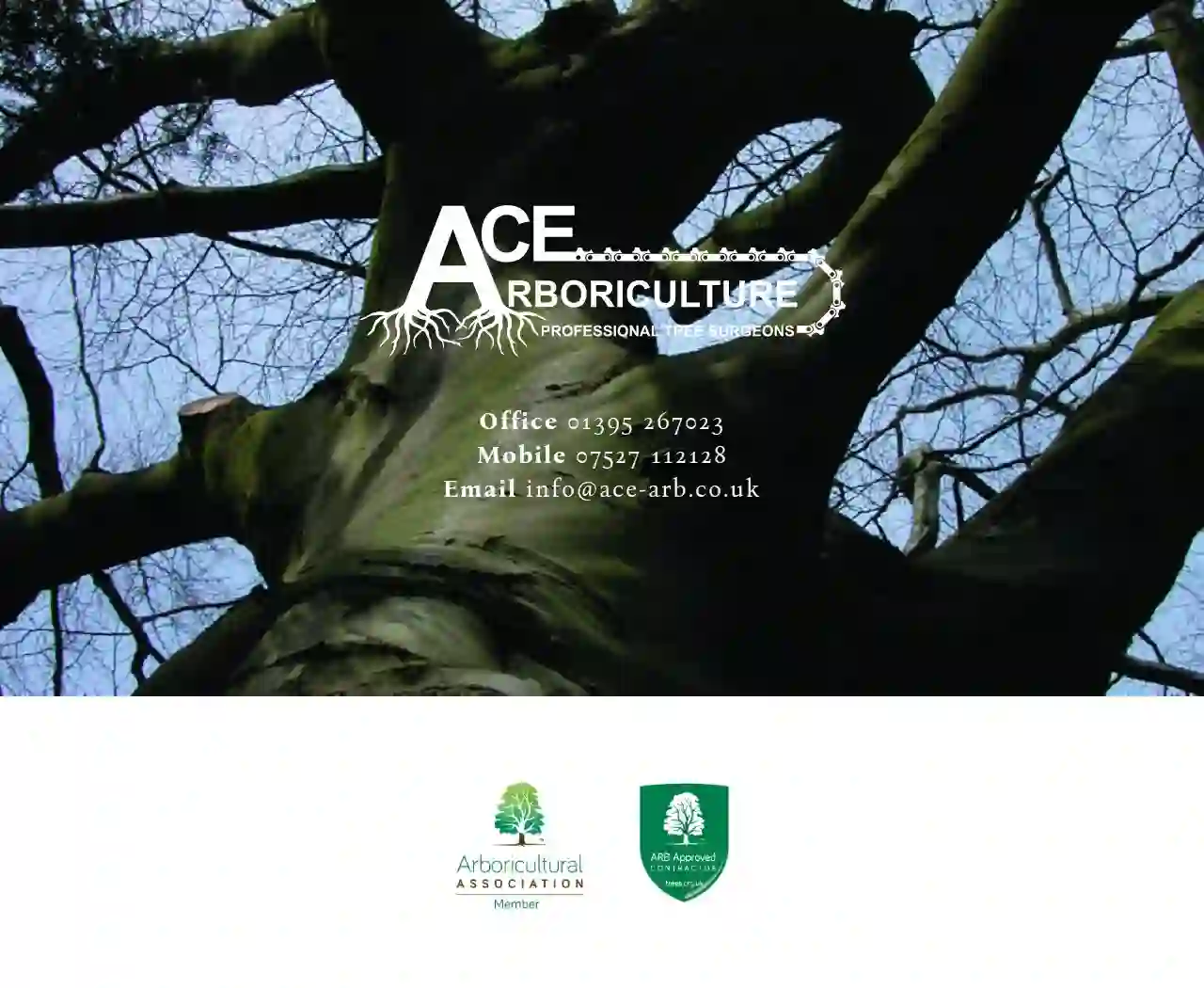
ACE ARBORICULTURE Ltd
55 reviewsExmouth, GBACE Arb is a professional tree surgery company based in Devon, UK. We offer a wide range of tree care services to both domestic and commercial clients. Our team of experienced and qualified arborists are dedicated to providing a safe and efficient service, while always putting the health and safety of our clients and the environment first. We are fully insured and accredited, and we pride ourselves on our commitment to customer satisfaction. Whether you need a single tree removed or a large-scale woodland management project, ACE Arb can help. Contact us today for a free, no obligation quote.
- Services
- Why Us?
- Gallery
Get Quote
The Regal Tree Company
Exeter, EX4 4HB, GBAt The Regal Tree Company, we deliver expert tree surgery services across Exeter and Devon for a wide range of clients from small residential gardens to larger public parks, recreational spaces, from single visits to long-term management plans. Our services include planting, pruning, reducing, reshaping, pollarding, stump grinding, and as a last resort, felling. All the arising waste associated with the works will be removed as part of the service. If you’re in need of a tree safely removed and disposed of, you’d be silly not to talk to me. I have years of experience working in this field and when it comes to trees, I understand them like the back of my hand. Considerate to the local environment. If your garden’s been a bit unloved recently and has become overgrown with trees, shrubs, and weeds, check out my garden clearance service. I have years of experience delivering high quality, professional tree surgery and garden clearance services. I am highly trained and customer focused. I can clear any space quickly and efficiently using professional grade tools, leaving you with a blank canvas to create your dream garden.
- Services
- Why Us?
- Our Team
Get Quote
Glendale Countryside -Silvanus Services
41 reviewsExeter, GBGlendale began creating and maintaining beautiful green spaces in 1990 and our desire for bringing them alive is stronger than it's ever been. A multi-award winning green space management specialist, people's fondness of our work has seen us extend our service offering over the years to include everything from design and specification, through to installation, operation and ongoing maintenance for commercial, private and public sector clients nationwide. Our highly driven team don't just see what they do as a job, more a full-blown passion for providing quality green spaces and outstanding customer service. Together, we are committed to ensuring Glendale continues to shape the future of our industry.
- Services
- Why Us?
- Accreditations
- Our Team
- Testimonials
- Gallery
Get Quote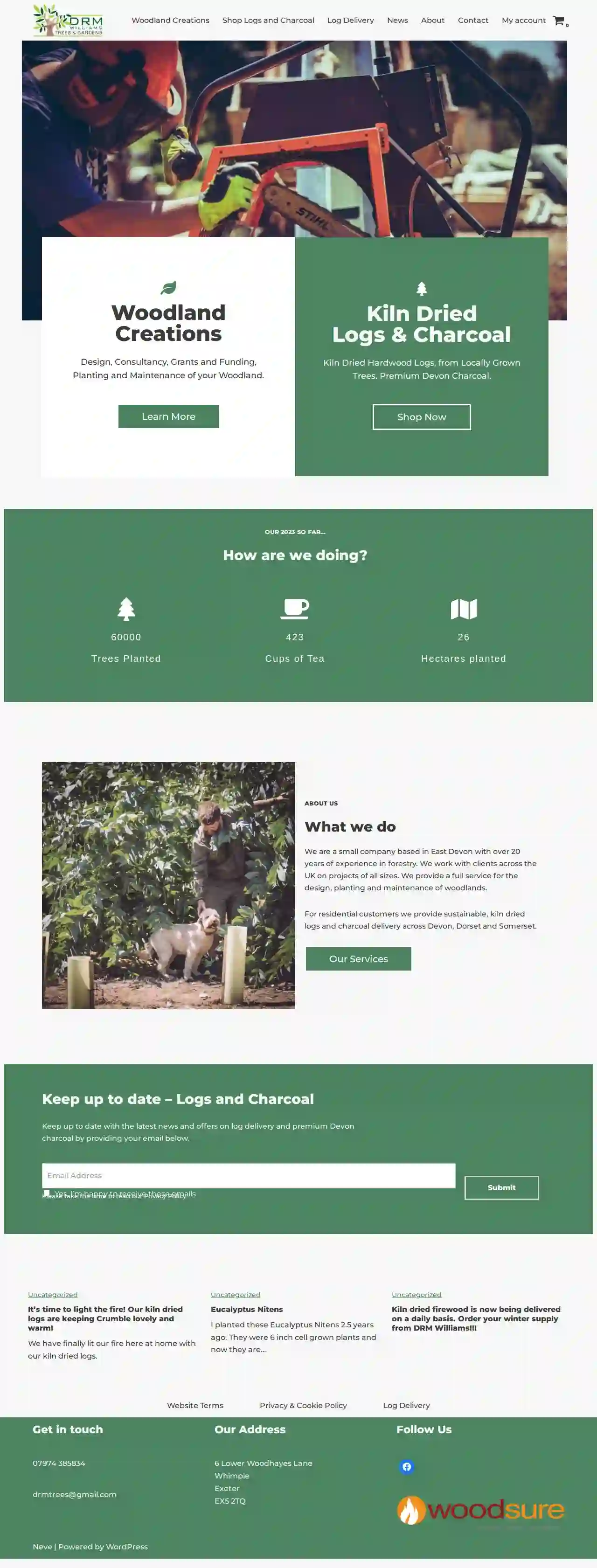
DRM WILLIAMS TREES AND GARDENS
53 reviews6 Lower Woodhayes Lane, Whimple, EX5 2TQ, GBWoodland Creations is a small company based in East Devon with over 20 years of experience in forestry. We work with clients across the UK on projects of all sizes, providing a full service for the design, planting and maintenance of woodlands. For residential customers, we provide sustainable, kiln dried logs and charcoal delivery across Devon, Dorset and Somerset. Our mission is to help people connect with nature through the creation and management of beautiful, thriving woodlands. We are passionate about sustainable forestry practices and believe that woodlands are essential for a healthy planet. We work closely with our clients to understand their needs and goals, and we are committed to providing them with the highest quality service.
- Services
- Why Us?
- Gallery
Get Quote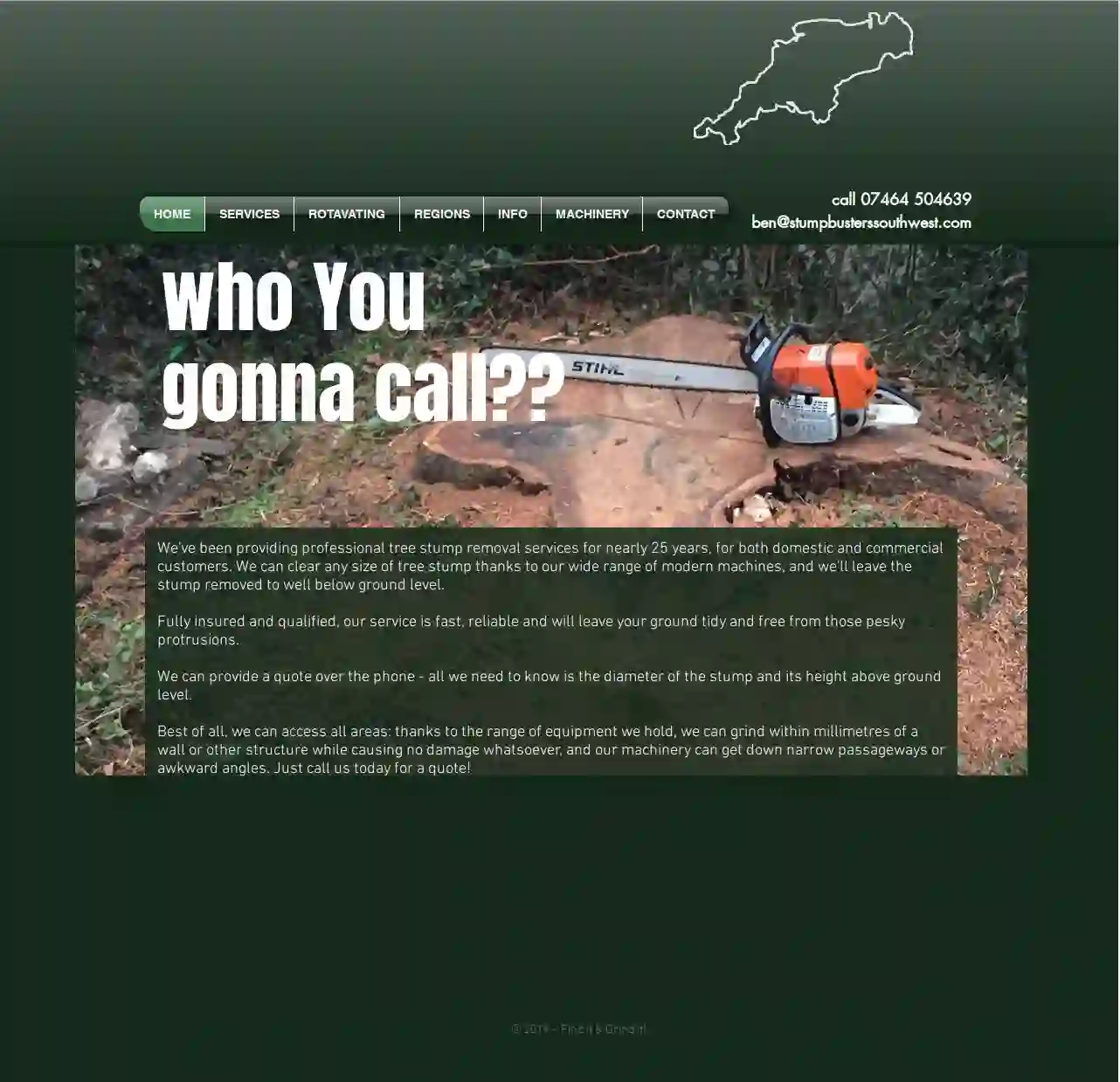
StumpBusters - Devon
Exeter, GBWe've been providing professional tree stump removal services for nearly 25 years, for both domestic and commercial customers. We can clear any size of tree stump thanks to our wide range of modern machines, and we'll leave the stump removed to well below ground level. Fully insured and qualified, our service is fast, reliable and will leave your ground tidy and free from those pesky protrusions. We can provide a quote over the phone - all we need to know is the diameter of the stump and its height above ground level. Best of all, we can access all areas: thanks to the range of equipment we hold, we can grind within millimetres of a wall or other structure while causing no damage whatsoever, and our machinery can get down narrow passageways or awkward angles. Just call us today for a quote!
- Services
- Why Us?
- Gallery
Get Quote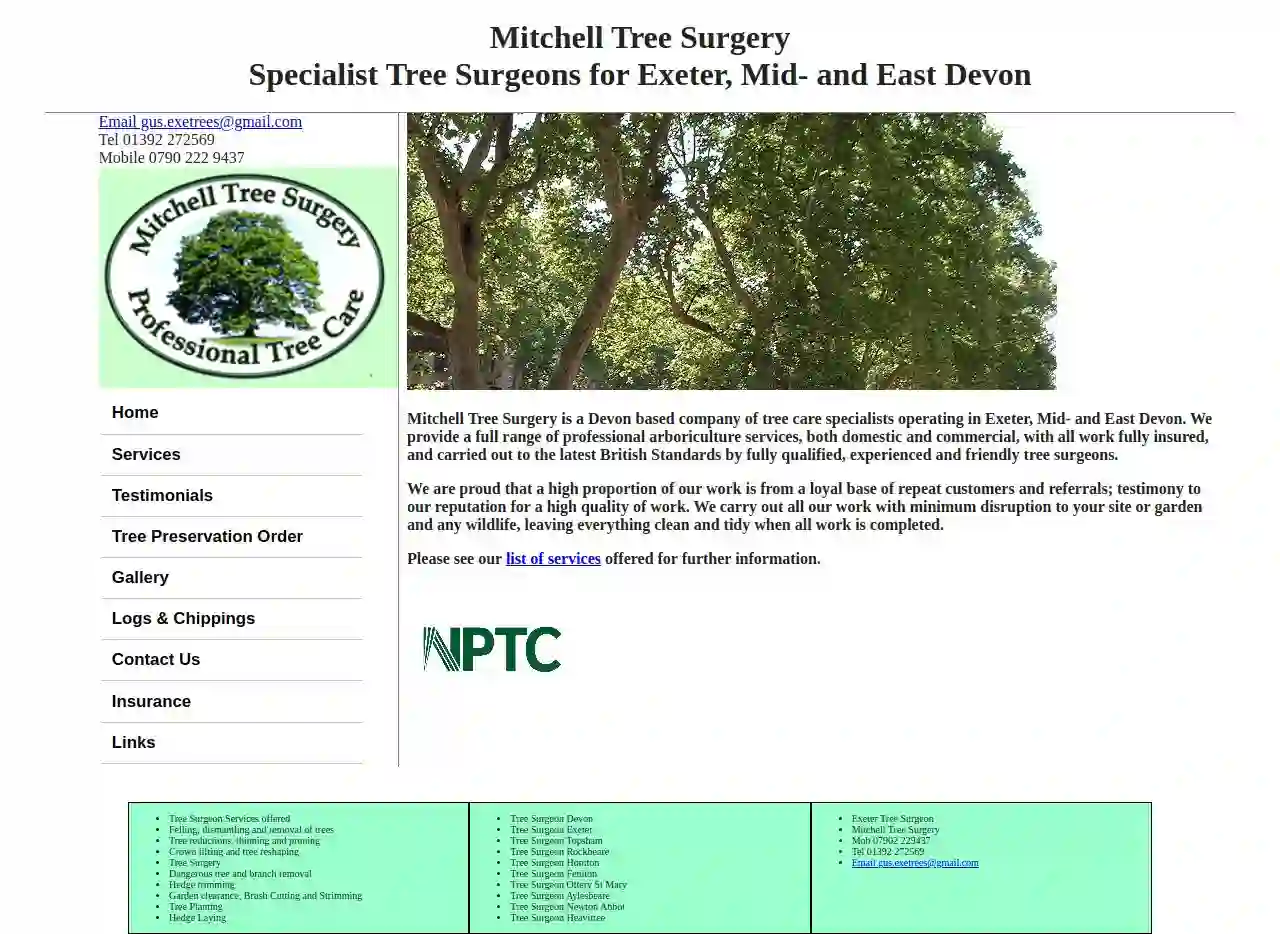
Mitchell Tree Surgery
4.611 reviewsExmouth, GBMitchell Tree Surgery is a Devon based company of tree care specialists operating in Exeter, Mid- and East Devon. We provide a full range of professional arboriculture services, both domestic and commercial, with all work fully insured, and carried out to the latest British Standards by fully qualified, experienced and friendly tree surgeons. We are proud that a high proportion of our work is from a loyal base of repeat customers and referrals; testimony to our reputation for a high quality of work. We carry out all our work with minimum disruption to your site or garden and any wildlife, leaving everything clean and tidy when all work is completed.
- Services
- Why Us?
- Gallery
Get Quote
Briscoe Tree Care
53 reviewsExeter, GBBriscoe Tree Care was established by Jon Briscoe in 2008 after he completed the NCH Arboriculture at Bicton College. Jon offers all aspects of tree surgery and hedge cutting at very reasonable rates. Qualifications: NCH Arboriculture, NPTC's 30,31,38,39, stump grinder, woodchipper. £2m Public Liability insurance. Please call to arrange a free quotation.
- Services
- Why Us?
- Accreditations
- Our Team
- Testimonials
- Gallery
Get Quote
Over 6,989+ Tree Service Contractors registered
Our tree service experts operate in Chudleigh & surroundings!
LocalTreeSurgeon has curated and vetted Top Arborists near Chudleigh. Find the most trustworthy contractor today.
Frequently Asked Questions About Tree Services
- Shallow Soil: In areas with thin or compacted soil, roots may not be able to penetrate deeply and instead grow near the surface.
- Soil Compaction: Heavy foot traffic, construction activities, or vehicles can compact the soil, making it difficult for roots to grow downward.
- Low Oxygen Levels: Roots need oxygen to survive, and in poorly drained or compacted soil, they may grow near the surface to access more oxygen.
- Seeking Nutrients: Roots may grow towards areas with higher nutrient concentrations, which can be near the surface in some cases.
- Tree Species: Some tree species are naturally prone to surface roots, such as maples, willows, and poplars.
- Age: As trees age, their root systems expand, and some roots may naturally grow closer to the surface.
- Extensive dieback: Large portions of the tree's crown are dead, with no signs of new growth.
- Severe bark damage: Large sections of bark are missing or severely damaged, exposing the inner wood.
- Root decay: Mushrooms or conks growing at the base of the tree, indicating fungal decay in the root system.
- Leaning precariously: The tree is leaning significantly and showing signs of instability.
- No leaves or buds: During the growing season, the tree is completely bare of leaves and shows no signs of new buds forming.
- Woodpecker holes: While a few woodpecker holes are not necessarily a cause for concern, numerous holes can indicate insect infestation or decay within the tree.
- Experience and qualifications: 'How long have you been in business? Are your arborists certified? What experience do you have with similar projects?'
- Licensing and insurance: 'Are you licensed and insured? Can you provide proof of insurance?'
- Safety practices: 'What safety measures do you take to protect your workers and my property during the project?'
- Cleanup and disposal: 'What will you do with the tree debris after the job? Will you remove the stump and clean up the work area?'
- References: 'Can you provide references from previous clients?'
- Written estimates: 'Can you provide a detailed written estimate outlining the scope of work, costs, and timeframe?'
- Tree Protection Zone (TPZ): Establish a designated area around the trees that is off-limits to construction activities. The size of the TPZ depends on the tree's size and species, but generally, it should extend to the drip line (the outermost edge of the tree's canopy).
- Root Protection: Avoid digging, trenching, or compacting the soil within the TPZ. If excavation is necessary, use hand digging or air spading to minimize root disturbance.
- Trunk Protection: Protect tree trunks from damage by wrapping them with protective barriers, such as burlap or plywood.
- Branch Protection: Avoid cutting or damaging branches unless absolutely necessary. If pruning is required, have it done by a certified arborist.
- Watering: Ensure trees receive adequate water during construction, especially if the soil has been disturbed or compacted.
- Monitoring: Regularly monitor trees for signs of stress or damage during and after construction.
Why do tree roots grow above ground?
How do I know if a tree is dying?
What questions should I ask a tree service company?
What is the best way to protect trees during construction?
Why do tree roots grow above ground?
- Shallow Soil: In areas with thin or compacted soil, roots may not be able to penetrate deeply and instead grow near the surface.
- Soil Compaction: Heavy foot traffic, construction activities, or vehicles can compact the soil, making it difficult for roots to grow downward.
- Low Oxygen Levels: Roots need oxygen to survive, and in poorly drained or compacted soil, they may grow near the surface to access more oxygen.
- Seeking Nutrients: Roots may grow towards areas with higher nutrient concentrations, which can be near the surface in some cases.
- Tree Species: Some tree species are naturally prone to surface roots, such as maples, willows, and poplars.
- Age: As trees age, their root systems expand, and some roots may naturally grow closer to the surface.
How do I know if a tree is dying?
- Extensive dieback: Large portions of the tree's crown are dead, with no signs of new growth.
- Severe bark damage: Large sections of bark are missing or severely damaged, exposing the inner wood.
- Root decay: Mushrooms or conks growing at the base of the tree, indicating fungal decay in the root system.
- Leaning precariously: The tree is leaning significantly and showing signs of instability.
- No leaves or buds: During the growing season, the tree is completely bare of leaves and shows no signs of new buds forming.
- Woodpecker holes: While a few woodpecker holes are not necessarily a cause for concern, numerous holes can indicate insect infestation or decay within the tree.
What questions should I ask a tree service company?
- Experience and qualifications: 'How long have you been in business? Are your arborists certified? What experience do you have with similar projects?'
- Licensing and insurance: 'Are you licensed and insured? Can you provide proof of insurance?'
- Safety practices: 'What safety measures do you take to protect your workers and my property during the project?'
- Cleanup and disposal: 'What will you do with the tree debris after the job? Will you remove the stump and clean up the work area?'
- References: 'Can you provide references from previous clients?'
- Written estimates: 'Can you provide a detailed written estimate outlining the scope of work, costs, and timeframe?'
What is the best way to protect trees during construction?
- Tree Protection Zone (TPZ): Establish a designated area around the trees that is off-limits to construction activities. The size of the TPZ depends on the tree's size and species, but generally, it should extend to the drip line (the outermost edge of the tree's canopy).
- Root Protection: Avoid digging, trenching, or compacting the soil within the TPZ. If excavation is necessary, use hand digging or air spading to minimize root disturbance.
- Trunk Protection: Protect tree trunks from damage by wrapping them with protective barriers, such as burlap or plywood.
- Branch Protection: Avoid cutting or damaging branches unless absolutely necessary. If pruning is required, have it done by a certified arborist.
- Watering: Ensure trees receive adequate water during construction, especially if the soil has been disturbed or compacted.
- Monitoring: Regularly monitor trees for signs of stress or damage during and after construction.